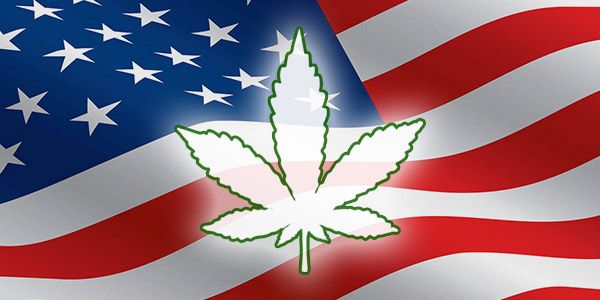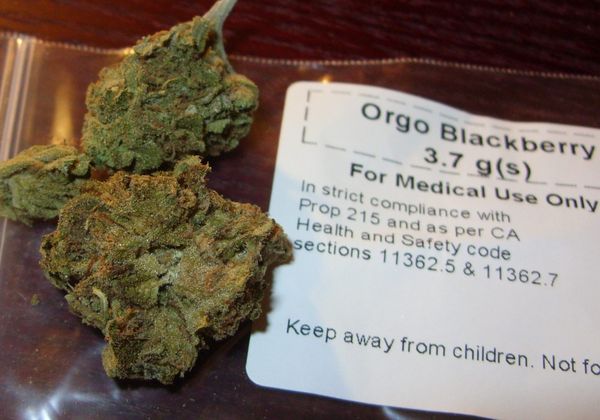- Last Thursday 19 May, the United States House of Representatives took a big step towards the legalisation of cannabis at a federal level. This body, in charge of approving or dismissing bills applied in all States, voted in favour of allowing war veterans to receive medicinal marijuana through a doctor's prescription, provided it is in one of the States where medicinal marijuana is allowed by state law.

The approval of this amendment is a turning point with respect to the prohibitionist position of the United States government. It should be remembered that in some States, such as for example California, the prescription and sale of cannabis for therapeutic uses in specialised centres is allowed. In others such as Colorado, even the commercialisation of marijuana is allowed. However, up until now federal law had not taken any steps forward in this respect, something that has led to the so-called "marijuana war", a complicated situation in which the legal status of marijuana has caused significant collective confusion.
On the one hand, State laws are pressing for the full legalisation of the "green gold, while the government tries to hinder the process and classifies this plant as a highly dangerous and addictive drug. Therefore, the approval of this amendment by the House of Representatives paves the way towards a possible legalisation process at a federal level.
With 233 votes for and 189 against, the House of Representatives has approved this amendment which had already been accepted beforehand in the Senate, but which was rejected last year by the House by just three votes. "We are very glad to have been able to leave behind this antiquated and discriminatory policy, which has negatively affected the quality of life of many veterans", declared Michael Collins, director of the Drug Policy Alliance's Office of National Affairs, "We need to have all the options available to be able to improve the health of our veterans. Congress has finally shown some commonsense in this issue, allowing these people to have the same conditions as other patients who reside in states where the medicinal use of marijuana is already a reality."
This amendment, which allows veterans equal access to medicinal cannabis, has been promoted and led by Republican Earl Blumenauer. A resolution by Congress that will mean that doctors who prescribe this type of treatment will no longer be penalised, as was the case up until now, by the V.A (Veterans Administration). A situation that forced veterans to seek their cannabis treatment outside the conventional medical system, through processes which were often complicated and costly. Something that is totally unacceptable when we are talking about people with serious illnesses who need urgent and quality medical attention.

"Today is a very important day for us", states TJ. Thompson, a veteran who lives in Virginia and who since 2004 suffers from a serious disability that prevents him from carrying out his day-to-day tasks with normality, "Congress has acknowledged our right to access all the tools possible, allowing us to choose medicinal cannabis". This measure means that the Veterans Administration can authorise its doctors and other centres supply its patients with recommendations, prescriptions and information about therapeutic cannabis.
A step forward that will bring a significant improvement for the quality of life of many war veterans who, due to a range of illnesses and injuries, have been forced to resort to prescription drugs that contain opiates in order to alleviate their chronic pain. Many studies have proven that marijuana helps to reduce the consumption of these types of medicines, which could be a solution to the growing problem of abuse and addiction to these prescription drugs that has become widespread among veterans.
The acknowledgement by the United States Congress of the medicinal properties of marijuana is a reflection of the changes that are taking place in a country that has historically maintained a staunch prohibitionist position with respect to cannabis.
Today, in the USA there are 25 states that have approved the medicinal use of cannabis and three where recreational use is also allowed, with the possibility that California may also join them in November. It is yet to be decided, and in fact in 2010 the population of California decided that it was not time to take this step; however, if they finally decide to change the model, this legendary state with its strong cannabis culture could become the leading state with regard to the legal status of this sector, with the concession of up to 17 licences. California was the first state to pave the way towards legalisation 20 years ago, and it only makes sense that now it is deciding whether to be a pioneer again with one of the most powerful and innovative models worldwide.
A slow but unstoppable process in the US towards the legalisation of marijuana that also has its reflection in the attitude of its politicians. Where before we would be met with an emphatic no, now there is a debate in which President Obama himself admitted in 2015 that he was in favour of the decriminalisation of marijuana, though not of its legalisation.Democratic candidate Hillary Clinton also softened her prohibitionist position, although she still does not support legalisation.
A revolution that started from a grassroots level, as it has been popular initiatives which have led to referendums that have changed state laws. Although federal legislation has remained firm and reciprocal up until now, an inevitable consequence seems to be that these changes will finally lead to a reform that will affect the whole country.
A changing legal framework that is accompanied by other factors that are also piling on pressure. In the United States, a country that is the biggest exponent of capitalism at a global level, the economic factor is a variable to be taken into account and the cannabis industry has emerged with the firm promise of being the new gold of the 21st century. Marijuana means money, and money moves mountains. A large number of entrepreneurs have joined this new business, and the figures speak for themselves: just six months after cannabis was legalised for recreational use in Colorado, this state was already generating $20 million a month.
A new business that also comes with added benefits, in this case with social benefits, as it seems that the legalisation of cannabis has brought a descent in crime rates. It makes sense, as many of the arrests carried out by the police are related to marijuana; just in Denver, homicides dropped by 5% during the first four months after the legalisation of marijuana at a state level.
The approval of this new amendment is therefore another milestone in the tough but constant path towards the full legalisation of marijuana. A dream for many that was unthinkable up until two decades ago and which, today, seems to be closer than ever.



Comments from our readers
There are no comments yet. Would you like to be the first?
Leave a comment!Did you like this post?
Your opinion about our seeds is very important to us and can help other users a lot (your email address won't be made public).